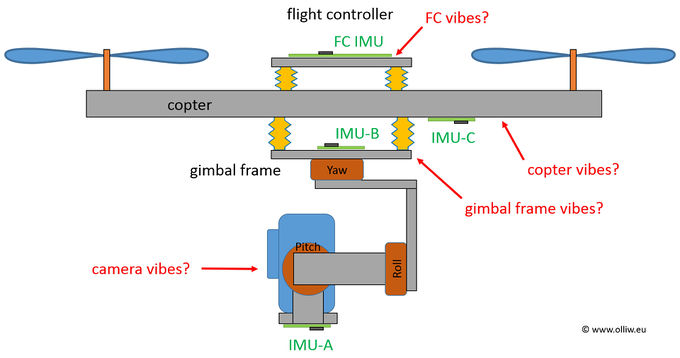Evaluating Vibrations and Optimizing Damper Systems: Difference between revisions
No edit summary |
|||
| Line 6: | Line 6: | ||
::[[File:Storm32-nt-vibrations-overview-01.jpg|680px]] | ::[[File:Storm32-nt-vibrations-overview-01.jpg|680px]] | ||
{{#ev:youtube|nGp_PlPxleQ|480}} | |||
== NT Logger == | == NT Logger == | ||
Revision as of 09:39, 26 March 2016
For aerial video applications, one of the most difficult aspects of a DIY gimbal system is to achieve a low level of vibrations and a well working damping system. The first reaction of most users to artefacts such as micro vibs or jello in the video seems to be to resort to PID tuning, while in fact the secret sauce of a well working system usually lies not in the PID tuning, which generally is "simple", but the copter vibration level and construction of the gimbal damping system.
Unfortunately, when it comes to the latter aspects the current approach available to us DIY guys is essentially trial-and-error, which at times can be frustrating. The STorM32 NT thus aims at providing tools to alleviate the situation. This is still an effort in progress, meaning that the best set of tools and/or best set of recipes to achieve the goals have not yet been established. However, some tools and procedures have emerged.
